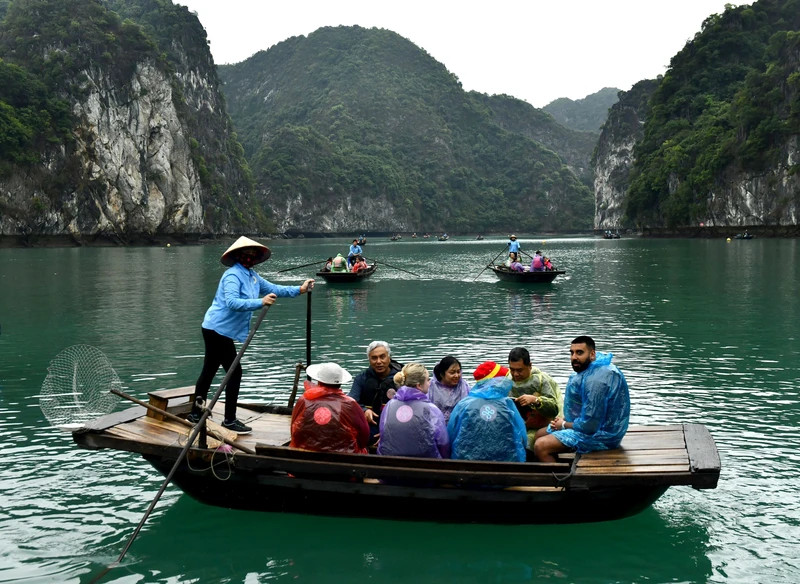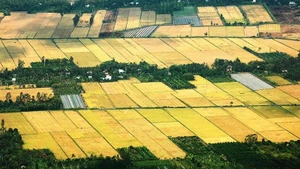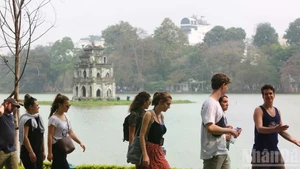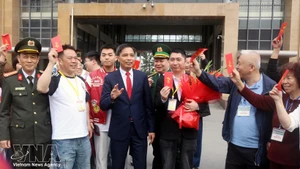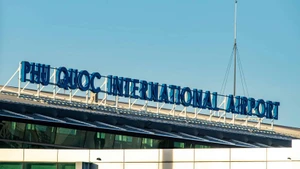Currently, Vietnam waives visas for travellers from 25 countries, with 13 enjoying unilateral exemption. Since August 2023, Vietnam has issued e-visas for all nationalities and extended their maximum stay from 30 to 90 days, with unlimited entries. Those who get visa waivers under Việt Nam's unilateral exemption policy can now stay for 45 days rather than the earlier 15. The electronic visa policy has created much more favourable conditions to attract tourists to Vietnam than before.
With simple and convenient procedures and valid for multiple entries within 90 days, e-visas have helped Vietnam become more friendly in the eyes of international tourists.
According to the announcement of the General Statistics Office (GSO), Vietnam welcomed more than 1.5 million international visitors in February 2024, an increase of 1.3% compared to the previous month and 64.1% compared to the same period last year.
Figures from the GSO showed that international arrivals to Vietnam in the first two months of this year reached over three million people, an increase of 68.7% compared to the same period last year, equivalent to 98.5% compared to the pre-COVID-19 pandemic years.
Regarding the market size in the first two months of the year, all regions grew strongly compared to the same period in 2023, with the recovery of the Asian market (77.8%), Europe (76%), and Oceania (36.5%). In addition, markets in Europe are growing, especially those enjoying unilateral visa exemption policies such as: Italy (82.3%), Russia (58.7%), Spain (48.5%), France (34.6%), the UK and Northern Ireland (32.6%).
The excitement of tourism activities and the results of welcoming international visitors in the first two months of 2024 show a very positive recovery of Vietnam's tourism industry. Experts in the tourism industry have described the visa policies as a tool to sharpen the competitiveness of the domestic tourism industry and create favourable conditions for international visitors to visit and travel in Vietnam.
Identifying the important role of the visa "relaxation" policy in the development of tourism in the new situation, many countries in the region, especially major competitors of Vietnamese tourism such as Thailand, Malaysia, and Singapore, have quickly accelerated in the fierce tourism race, opening the door wide to attract international visitors.
Currently, Thailand exempts visas for 76 countries; Malaysia exempts visas for 156 countries; Singapore exempts visas for 162 countries; and Vietnam exempts visas for 25 countries.
Head of the Secretariat of the Tourism Advisory Board (TAB) Hoang Nhan Chinh said that countries in the region are making efforts to attract tourists from key markets and create easy conditions for international visitors to enter the country.
Thailand waives visas for 76 countries and plans to exempt visas for some additional European countries, extending the stay period from 30 to 90 days for tourists from certain countries. Singapore exempts visas for citizens of most countries and territories for stays of 30 to 90 days.
An open and long-term visa policy will improve competitiveness and make Vietnam more attractive in the eyes of international visitors. It will also be a lever to help develop and improve the competitiveness of Vietnamese tourism in the race to attract international visitors.
According to experts and tourism insiders, to create a breakthrough in the coming time, Vietnam needs to further relax its visa policies to gain a competitive edge over others in the region.
Specifically, Vietnam should unilaterally expand visa exemption for citizens of countries with a higher level of development, large tourism spending, and long-term stays, while also piloting visa exemption for short periods (from six to 12 months) for those from some promising, large-scale markets like China and India, in order to stimulate tourism demand and strongly develop these large markets.
Leaders of the Ministry of Foreign Affairs (MoFA) said that the Ministry is negotiating with 15 countries for mutual visa exemption, and with 80 others for exemption for diplomatic and official passport holders.
The ministry said it will step up negotiations and sign international treaties with a number of countries on visa exemptions for ordinary passport holders.
The MoFA has also coordinated with the Ministry of Public Security to propose an expansion of the list of countries eligible for unilateral visa exemption, while also improving infrastructure to facilitate e-visa granting.
In addition, the ministry will regularly and promptly direct representative agencies to increase information and propaganda about Vietnam's visa policy, and guide foreign citizens to carry out e-visa application procedures.
Recently, the Ministry of Public Security was assigned by the Government to promote administrative procedure reform, apply science and technology, and deploy automation solutions in handling procedures for foreigners to enter, reside and travel safely in Vietnam;
At the same time, the ministry will lead research to propose and apply online exit and entry procedures through FaceID and E-Passport to create convenience and speed for visitors. It is also consider piloting the issuance of border visas on the basis of on-site personnel approval for international tourists.
